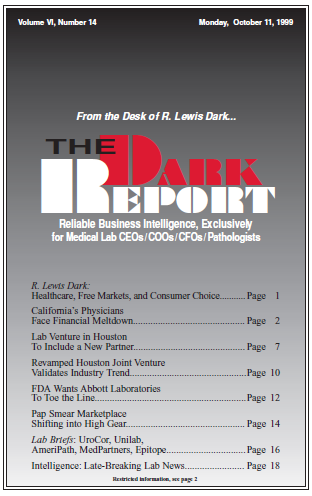CEO SUMMARY: In the short term, it’s Abbott Laboratories which must deal with increasingly aggressive FDA regulators. But the real story behind the story is that the FDA is stepping up regulatory oversight of the entire diagnostics industry. Abbott faces serious consequences if it cannot resolve its disagreement with government regulators about quality issues in […]
To access this post, you must purchase The Dark Report.


